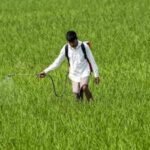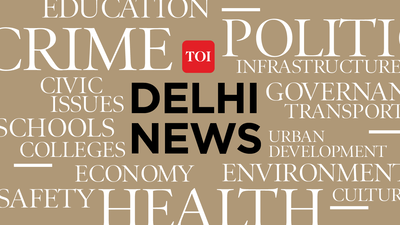New Delhi: In a bid to prevent student suicides, AIIMS Delhi on Wednesday unveiled a first-of-its-kind AI-powered mental health and wellness programme, aimed at breaking stigma and building support networks on campuses.The launch of the initiative, “Never Alone”, coincided with World Suicide Prevention Day, and it offers round-the-clock screening, counselling, intervention and follow-up care for students through a highly secure, web-based app accessible via WhatsApp, which will start functioning within a month.“Suicide is largely preventable. Yet, stigma and lack of awareness keep nearly 70-80% of people with mental health issues from seeking treatment,” said Dr Nand Kumar, professor of psychiatry at AIIMS. “Even in medical colleges, where psychiatrists are available, we see suicides because students hesitate to reach out.”The programme was rolled out at AIIMS Delhi, AIIMS Bhubaneswar, and the Institute of Human Behaviour and Allied Sciences (IHBAS), Shahdara, with faculty and administrative backing. Students will have 24×7 access to expert consultations — both virtual and offline.AIIMS Delhi plans to extend the service free of cost to other AIIMS across the country through the Global Centre of Integrative Health (GCIH), a not-for-profit initiative mentored by AIIMS alumnus Dr Deepak Chopra, considered a pioneer in integrative health. For private institutions, the basic mental health screening will cost 70 paise per student per day, Dr Kumar said, adding that institutes will need to subscribe through AIIMS Delhi.The launch comes against the backdrop of alarming suicide statistics. According to the psychiatry department at AIIMS, globally, suicide claims 727,000 lives each year — one every 45 seconds — with nearly 73% of cases in low- and middle-income countries.In India, the picture is especially grim. NCRB estimates that over 1.7 lakh people died by suicide in 2022 — the highest in 56 years. Young adults are most vulnerable: those aged 18-30 years accounted for 35% of all suicides, followed by the 30-45 age group at 32%.While causes vary from relationship breakdowns and exam stress to chronic illness, financial strain and depression, the common thread is a sustained sense of hopelessness and worthlessness. Experts warn that stigma keeps 70-80% of people with mental health problems from seeking care, even in medical colleges where psychiatrists are available.While the central govt in 2022 launched a national suicide prevention strategy, aiming to reduce suicides by 10% each year until 2030, mental health experts underlined the need to focus on students and youth, who form the largest at-risk group.“Many suicides are not premeditated but impulsive, triggered by relationship disputes, financial crises, chronic illness, or sheer inability to cope with stress,” said Dr Kumar.According to experts, changing how society talks about suicide is as important as scaling up mental health services. The ‘Never Alone’ app aims to bridge this gap — by connecting students with counsellors, psychiatrists and faculty members on call and ensuring immediate help even at odd hours. The system is anonymous and designed to overcome barriers of stigma and access.“Suicide can affect anyone — rich or poor, rural or urban. But loneliness and lack of support are often the tipping points,” Dr Kumar said. “With Never Alone, we want to ensure no student feels isolated, and every cry for help finds an answer.”











